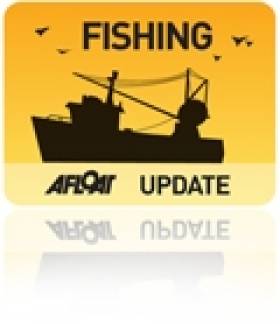Displaying items by tag: finning
Time Running Out to Support Campaign Against Shark Fin Trade in Europe
An EU-wide campaign against the shark fin trade in Europe is seeking votes from the public to take the matter to the European Parliament.
The removal of fins on board EU fishing vessels and in EU waters is prohibited by EU law and sharks must be landed with their fins naturally attached.
However, the European citizens’ initiative Stop Finning - Stop the Trade claims that the union is actually among the biggest exporters of fins and a major transit hub for the global fin trade.
“[The EU] is a major player in the exploitation of sharks and as inspections at sea are scarce. fins are still illegally retained, trans-shipped or landed [in the union],” campaigners say.
The initiative aims to end the trade of fins in the EU including the import, export and transit of fins other than if naturally attached to the animal’s body.
As finning prevents effective shark conservation measures, campaigners are requesting to extend REGULATION (EU) No 605/2013 to the trade of fins and therefore ask the commission to develop a new regulation, extending “fins naturally attached” to all trading of sharks and rays in the EU.
The initiative has collected more than 370,000 signatories out of the million required — but many member states have not met their individual threshold, including Ireland which needs another 5,000 supporters before the collection period closes on 31 January 2022.
Individuals can find out more about the campaign at www.stop-finning-eu.org and register their support for the initiative via the EU government portal HERE.
Higgins Asks EU for Progress on Shark Finning Laws
"Sharks are captured and their fins cut off before the remaining carcasses are thrown back into the sea. The practice was made illegal in the EU in 2003, but under the present regulations, Member States are able to issue special permits to exempt fishing vessels from the ban," the North West MEP explained.
Under the exemption, the weight of fins kept from the catch must not exceed 5% of the live weight of the shark catch. However, reports have found the fins of some shark species did not typically represent 5% of the live weight of a shark, creating a loophole that meant finning could take place unnoticed.
"Anti-finning campaigners want to see the adoption of a requirement that sharks be landed with their fins naturally attached to their bodies. It is an issue that needs to be addressed urgently and I would ask the Commission to update MEPs on their progress towards new legislation in this area which will completely outlaw shark finning," Mr Higgins added.
Globally, sharks are captured for their meat, fins, liver and oil. However, it is the fins that command high prices, fetching up to 300 euros/kg in Hong Kong.





























































